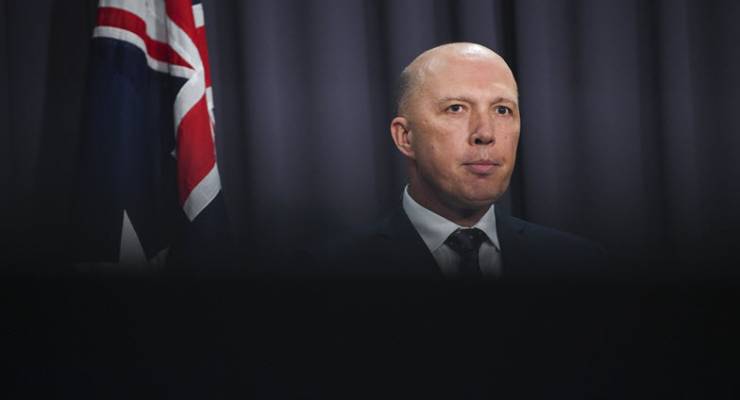
In the course of defending himself as more details emerge of his intervention to assist a family of Liberal Party donors keep a French au pair in the country, Home Affairs Minister Peter Dutton has noted “there were hundreds of cases each year where immigration ministers, including previous Labor ministers, considered cases ‘where a visa has been cancelled or a negative decision is handed down by the department’.”
Dutton is correct. But experience tells us that it is highly unusual for a minister to act with such alacrity when asked to intervene in a case. My experience, and that of many other lawyers and migration agents, is that individuals such as asylum seekers and New Zealanders — whose visas Dutton may have revoked because of criminal history — wait weeks and months for a reply from him or his office.
This is an anecdotal observation because it is difficult to find data on the nature of ministerial intervention and the average length of time it takes for the minister to make a decision to intervene or not.
The Department of Home Affairs, previously the Department of Immigration, used to publish detailed statistics about the number of ministerial interventions, what types of visas these related to, and how many intervention requests were acceded to and how many rejected. Data for 2012-13 is available in that convenient format. But it is difficult to find comparable data beyond that year — which, of course, was when Scott Morrison became immigration minister under Tony Abbott.
The latest Department of Home Affairs Annual Report 2016-17, includes some general data on the number of cases where departmental decisions about visa revocations are overturned but the index to the 332-page self-congratulatory report does not include an entry for ministerial intervention. The department’s website, which includes a statistics section, is equally unhelpful, and when you type in “ministerial intervention statistics” into the website search engine there is little relevant information for any year after 2013.
Last week I called the media number of the Department. The media officer did not know anything about ministerial intervention statistics and when I called back an hour later, having given written notice by email as she requested I do, and in which told her I needed to be pointed in the direction of the statistics within an hour please, she simply said “we are working on it” and then the usual “we have a high volume of work”. One would have thought given the currency of the ministerial intervention topic the Department would have had the statistics and how to read them at their fingertips. But apparently not!
So the bottom line is this: we do not know how many times Dutton has intervened in cases and overturned the departmental decision, and nor do we know whether his response in the au pair case involving the McLachlan family was pretty standard, or whether it was done in haste.
What we do know, however, is what the department tells those who want to get the minister to overturn a negative departmental decision:
Ministerial intervention is not part of the visa process and very few requests for ministerial intervention are successful. The Minister is not obliged to consider your case or to intervene in your case.
Note that “very few requests” are successful. This sends a clear message that your case needs to be out of the ordinary for the minister to intervene. So, if the French au pair was an extraordinary case, why does this minister refuse to intervene when New Zealanders who have lived all their lives here, and who have children and parents here, have to leave Australia? Or asylum seekers who have serious mental health issues are sent back to the hellhole they escaped from? Why are their cases not extraordinary?








Morrisons insistence that there is nothing to see here is a fair indication that there IS and that there IS if you went back and looked at Morrison’s behavior.
As worrying as the question of Ministerial Authority may be, it is not the real question. The real question is the level of gross hypocrisy exhibited in contrast to the treatment of the prisoners on Manus and Nauru, who have committed no crime. Unlike these women who have breached their visa conditions and should have been deported.
“Humanitarian grounds”? Is that some sort of coffee?
I’m hoping a Labor government will hold an RC into the administration of the Immigration portfolio for the years 2013-19. I reckon there will not be any shortage of submissions.
Abul Rizvi, former senior Departmental officer in Immigration, provides a very clear explanation on the Inside Story website of why Dutton breached his own guidelines in approving the nannies.